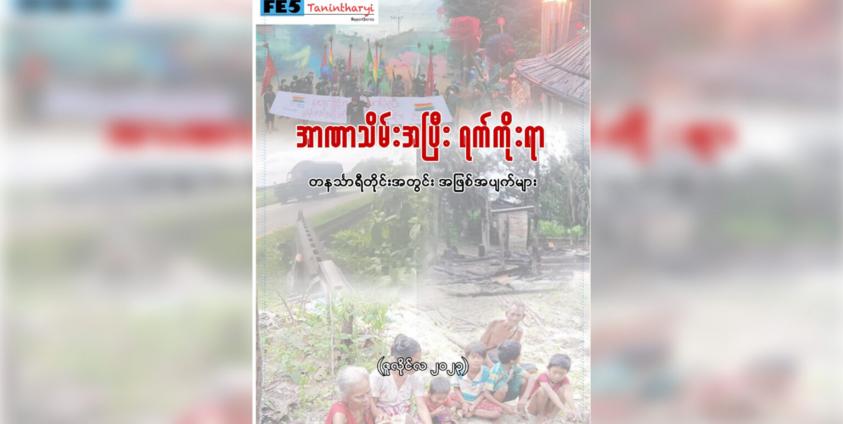According to a local NGO report by FE5, 'More than 900 days in the coup', over 30000 individuals were displaced in the Tanintharyi Region in July due to the Military Council's operations in the residential villages and arson attacks on houses.
FE5, a non-governmental organization, diligently observes and documents human rights abuses as well as the political landscape in Tanintharyi Regio
In the context of diminishing territories under their control, the Junta has escalated its tactics, resorting to acts of terrorism and intensifying the targeted shelling of residential areas. This has driven the increase in IDPs displaced by the conflict
during July. The report further highlights the fluid nature of the war refugee count, influenced by the ongoing armed clashes within the region.
A Launglon villager told KIC "War-displaced people fall into two main categories. There are those who lost their homes
to soldiers, and now wander without a steady place to stay. Then there are others who left temporarily when the Military Council attacked, but went back home after the soldiers had departed.In our township, we have a few thousand displaced by the war”.
Aid workers also noted that the Military Council's restrictions on rice transportation, coupled with fees based on the amount
of rice being transported, are hindering the open provision of food to the war-displaced people in the region.
According to the report released by FE5 on August 11th, out of the 30,000 war-displaced individuals in the Tanintharyi Region, over 10,000 are from villages in Dawei District, and more than 20,000 are from Myeik District. Approximately 6000 are residing in refugee camps, while the remaining are temporarily seeking refuge in forests, as well as towns and villages where relatives reside.
As per the report, the current year's rice cultivation in the area has been disrupted by the exodus of local communities. The report also highlights concern among farmers regarding potential hazards such as landmines during their
work, the risk of artillery shell impacts, and arbitrary arrests and fatalities at the hands of the Military Council troops.
"This rainy season, floods caused a lot of damage to farms, and in some parts of southern Tanintharyi Region, people had to abandon their farms and homes because of the Military Council's operations”, a farmer who did not want to be named said.
In the 'More than 900 days in the coup' report, FE5 has compiled significant occurrences from July, encompassing killing of civilians and conditions in the prisons. The report was assembled with the intention of drawing greater attention to the frequent occurrences of deaths, damages, and losses experienced during the ongoing post- coup period.








